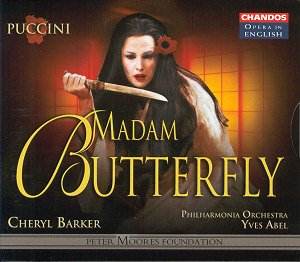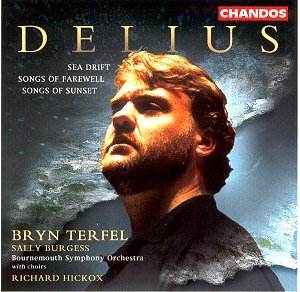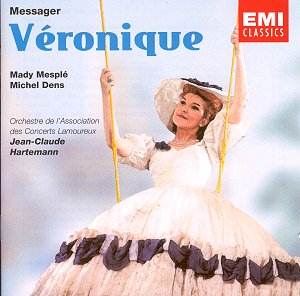 Composer: Giacomo Puccini
Composer: Giacomo Puccini
Works: Madama Butterfly (in English)
Performers: Cheryl Barker (Cio-Cio-San), Jean Rigby (Suzuki), Paul Charles Clarke (Pinkerton), Gregory Yurisch (Sharpless), Stuart Kale (Goro), Geoffrey Mitchell Choir, Philharmonia Orchestra/Yves Abel
Recording: Blackheath Halls, London, 13-17.12.2000
Label: CHANDOS
Puccini’s “Madama Butterfly,” a poignant tale of love and betrayal, is often revered for its lush melodies and emotional depth, woven into the fabric of the late Romantic operatic canon. Premiered in 1904, the opera reflects both the European fascination with the East and the tragic consequences of cultural misunderstanding. The decision to present this work in English, while contentious, offers a fresh perspective on this perennial masterpiece, enabling a broader audience to engage with the narrative in a more immediate way. This Chandos recording, featuring a talented ensemble and an insightful conductor, provides a compelling case for this language choice.
Yves Abel’s conducting is a revelation, as he expertly balances the orchestral textures, allowing Puccini’s often heavy scoring to remain transparent. Abel’s approach captures the essence of the music’s ebb and flow, drawing out both its lyrical beauty and dramatic tension. The orchestral opening, with its sweeping strings and poignant woodwinds, sets a haunting atmosphere that is maintained throughout the performance. Abel’s ability to infuse each phrase with emotional clarity is reminiscent of the great Italian conductors, yet it possesses a unique sensibility that allows the English libretto to resonate authentically. The lush harmonies of the score bloom under his baton, revealing the nuances that Puccini meticulously crafted.
The vocal performances are equally noteworthy. Cheryl Barker, as Cio-Cio-San, navigates the character’s transformation from youthful innocence to tragic despair with remarkable depth. Her lower register, initially tinged with a mezzo-like warmth, evolves into a powerful, soaring presence in her iconic aria “One fine day.” While her vibrato can sometimes veer towards the squally, it ultimately serves to enhance the emotional arc of her character. Paul Charles Clarke’s Pinkerton, with his pure tenor sound, presents a fascinating contrast to Barker’s Cio-Cio-San. His interpretation lacks the baritonal weight often favored by contemporary tenors, aligning him more closely with a stylistic lineage that echoes early Carreras, thus providing an intriguing dimension to Pinkerton’s vacillation between charm and callousness.
Gregory Yurisch’s portrayal of Sharpless deserves special mention. His rich, resonant voice conveys a palpable sense of regret and responsibility, imbuing the role with a moral gravity that is often overlooked. Each character’s vocal delivery is meticulously crafted to ensure clarity of text, an essential element given the opera’s reliance on dramatic narrative. Jean Rigby’s Suzuki complements Barker beautifully, her mezzo-soprano richness adding depth to the emotional landscape, particularly in the opera’s harrowing final act.
The recording quality is commendable, capturing the nuances of both the orchestra and the singers with striking fidelity. The sound engineering allows for a balanced interplay between the vocalists and the orchestra, although listeners may need to adjust their volume to fully appreciate the climactic moments. The inclusion of a libretto in English, along with translations into French, German, and Italian, reflects a thoughtful approach to accessibility, though one might question the market need for such provisions.
This performance of “Madama Butterfly” in English stands as one of the most compelling interpretations of the work, demonstrating that a strong ensemble can elevate the operatic experience beyond merely showcasing individual stars. It eschews the typical reliance on marquee names for a cohesive and dramatic presentation that honors the essence of Puccini’s score. The combination of Abel’s insightful conducting, the cast’s dedicated performances, and the recording’s clarity all contribute to a vibrant and engaging listening experience. For those willing to embrace this English rendition, it offers a profound glimpse into the emotional tapestry of Puccini’s creation, reaffirming its timeless relevance.



